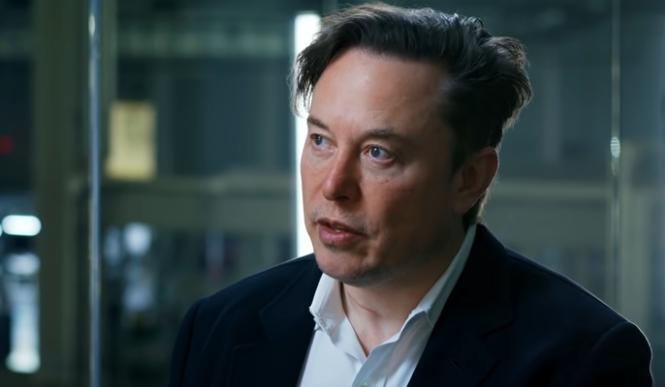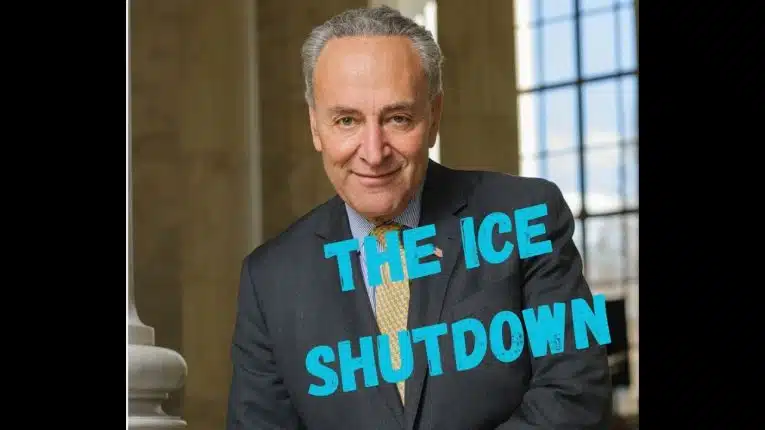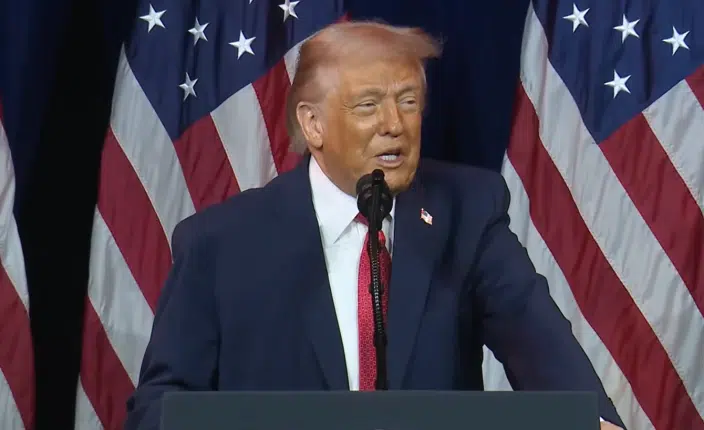
Hours before Elon Musk announced that he is joining the Republican Party on Twitter, writing the Democratic Party had “become the party of division & hate,” he had just strongly reacted to S&P’s decision to remove Tesla from its Environmental, Social and Governance (ESG) index.
“Exxon is rated top ten best in world for environment, social & governance (ESG) by S&P 500, while Tesla didn’t make the list! ESG is a scam. It has been weaponized by phony social justice warriors,” Musk wrote.
In a follow-up tweet, Musk posted a Dwayne Johnson meme asking, “What’s an ESG score?” to which his companion replies, “It determines how compliant your business is with the leftist agenda,” leaving Johnson’s character pictured shocked and agitated.
Despite Tesla doing more for the environment than any company ever! pic.twitter.com/ImxrhnRepj
— Elon Musk (@elonmusk) May 18, 2022
It is one of the great ironies that Musk, whose company pioneered the modern electric car industry and has perhaps benefited more from ESG investment than any other, seeing Tesla’s stock rise to as high as $1,200 a share last year before the current bear market, now suddenly poses the single greatest threat to the ESG leviathan.
It seems to have at least in part catalyzed his departure from the Democratic Party.
In March, shortly after it was clear that war in Ukraine, and resulting Western sanctions on Russian oil and gas production, would create higher inflation and energy shortages, Musk called for an increase in oil and gas production in a bid to offset Russia, writing on Twitter: “Hate to say it, but we need to increase oil & gas output immediately. Extraordinary times demand extraordinary measures.”
Here, Musk was taking on the E of ESG: Environmental. That is, with a world at war, domestic energy production should take priority over far-off goals to address carbon emissions globally. It was heresy.
In April, when Musk made his bid to buy Twitter, he took on the S of ESG: Social, by addressing Twitter’s terms of service. Over the years, Twitter has pursued aggressive Diversity & Inclusion goals that internally impact racial and gender hiring quotas — which run afoul of federal civil rights law — and diversity sensitivity training at the company, and which outwardly enforces corporate censorship policies on the public under the guise of terms of service, especially to anyone who dissents against these goals.
In 2020, Twitter’s ESG report declared that it would not “amplify” the speech of some on their platform: “Freedom of speech is a fundamental human right — but freedom to have that speech amplified by Twitter is not. Our rules exist to promote healthy conversations.” Also, “We aim to strike an appropriate balance between empowering freedom of expression and creating a safe service for participatory, public conversation.”
In other words, some users on Orwellian Twitter are more equal than others.
Instead, Musk proposes to buy Twitter and make it a free speech platform because he says it is essential to functioning democracies to have open platforms.
Already, Musk is proving that individuals against this ESG corporate state are not supposed to challenge the agenda, or it will try to destroy you. In the process he has smashed their temple into a thousand pieces for all to see. But a sedated public could soon forget who its masters really are without frequent reminders. Musk will have to follow up on this if he wants to make it stick.
In the meantime, Musk has a point about the oil companies garnering high ESG scores. Is it greenwashing? Or is something else afoot?
In 2021, ExxonMobil, the largest producer in the U.S., announced that it would produce about 3.7 million barrels of oil a day — about 18 percent of all U.S. consumption — from its facilities throughout the world, a level which would remain relatively unchanged through 2025.
This year, even with the war in Ukraine unfolding, the estimate for 2022 was up slightly to 3.8 million barrels a day, expected to rise to 4.2 million barrels a day by 2027.
Chevron, the second largest U.S.-based producer, currently produces about 3 million barrels a day, expected to rise by just 500,000 barrels per day by 2025 to 3.5 million barrels per day.
In other words, the largest oil producers in America, even with inflation running sky high and a pressing security and strategic need to offset the loss of Russian oil and gas production, are sitting on production. They just don’t care.
Long term, ExxonMobil in its 2020 corporate annual report stated that it is “Positioning for a Lower-Carbon Energy Future” by “working to develop breakthrough solutions in areas such as carbon capture, biofuels, hydrogen, and energy-efficiency process technology that can help achieve the Paris Agreement objectives. In early 2021 ExxonMobil announced the creation of a new business, ExxonMobil Low Carbon Solutions, to commercialize low-carbon technologies.”
According to ExxonMobil President Neil Chapman, speaking on March 2 to investors, “we will reduce the emissions in our existing operations. We’re aiming for net-zero Scope 1 and 2 emissions at our operated facilities by 2050.” And in the U.S., Exxon’s net zero plans will be attained on the Permian basin by 2030.
This is no surprise at all. BlackRock, a hedge fund with more than $9 trillion of assets under management, has placed green activists onto the board of Exxon to make it a “not-oil” company, thanks to ESG.
In Chevron’s 2020 corporate annual report, it promised “higher returns in a lower-carbon future” by “reducing the carbon intensity of our operations and assets, prioritizing the projects that return the largest reduction in carbon emissions at the lowest cost to customers and society… increasing renewables and offsets in support of our business…. [and] investing in low-carbon technologies to enable commercial solutions while leveraging our capabilities and operations to advance technologies such as carbon capture and hydrogen.” Chevron also has similarly set a goal to be a net-zero carbon emitter by 2050.
In other words, American oil companies get a higher ESG rating because they’re being good boys and girls and squatting on federal leases and promising not to drill more oil and gas. In the process, they have embraced an investment model that calls for their extinction over the longer term, particularly goals to support the Paris Climate Accords and to reduce carbon emissions to zero by deploying carbon capture technologies and reducing onsite carbon emissions on existing production facilities, and so ESG funds reward them in the short term.
And now Musk is taking it on. It does not appear coincidental that Musk’s departure from ESG comes at the same moment of his arrival to the Republican Party, which appears poised to take over the House and/or the Senate in the 2022 Congressional midterms, and whose representatives will be in a strong position to challenge ESG.
But they have to know what they’re aiming for.
ESG investing has increased dramatically the past decade via private retirement funds regulated under the Employment Retirement Income Security Act (ERISA) thanks to a regulation by the Obama Labor Department in 2015 allowing ESG investments into tax-free retirement savings accounts. A 2020 regulation by the Trump administration to water that down was promptly overturned by the Biden Administration.
In addition, the $762 billion federal Thrift Savings Plan (TSP) for federal employee retirees will begin investing in ESG funds in 2022, following state government employee retirement funds in California, New York, Colorado, Connecticut, Maine, Maryland and Oregon.
While in blue states it might be more difficult to remove these types of investments from state pensions, in red states it would be no trouble at all, to the extent they are even making such investments.
The real work that must be done is in Washington, D.C., where a Republican Congress will need to defund and prohibit ESG investments to tax-free investments via ERISA and to federal retiree pension accounts. There is no other way.
But Musk should not automatically assume Republicans would immediately get to work on the problem, else why did they not fix it before when they were in power? Musk will need to identify offices who want to take this issue on, and Republican leadership that’s willing to fight for it in the appropriations bills where policy riders go — and he needs to figure out which members are actually on the ESG take and have zero intention of ever helping him or, you know, America.
If Republicans fail, the combination of these incentives and subsidies has led to an unprecedented rise of ESG investment: $38 trillion out more than $100 trillion global assets under management, will grow to $53 trillion by 2025, according to Bloomberg News.
That’s about one-third of all assets under management, which are already dominated by ESG funds. A KPMG survey found that a whopping 82 percent of U.S. corporations are touting ESG sustainability goals in their corporate filings (hat-tip to Ben Weingarten). And while in some respects, if everything is ESG, nothing is, on the other hand, ESG’s impacts on global energy production, inflation, human resource departments’ discriminatory hiring practices, censoring social media and attempting to establish Democratic one-party rule are real enough.
Musk could take that on, too. With an imminent recession on the horizon with the economy overheating because of 8.3 percent consumer inflation and 11 percent producer inflation, perhaps with Musk’s help as the world’s richest man, Republicans could make handsome gains in Congress this year. And then he will have to follow up to ensure they are held accountable for their promises.
In the meantime, Tesla Oil & Gas has a nice ring to it.
Robert Romano is the Vice President of Public Policy at Americans for Limited Government.
Updated 5/19/22, 10:35 a.m. for typos.






